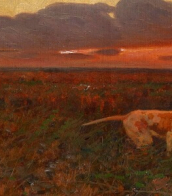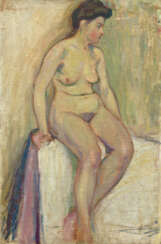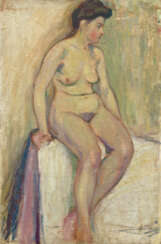alexander wassiljewitsch kuprin (1880 - 1960)
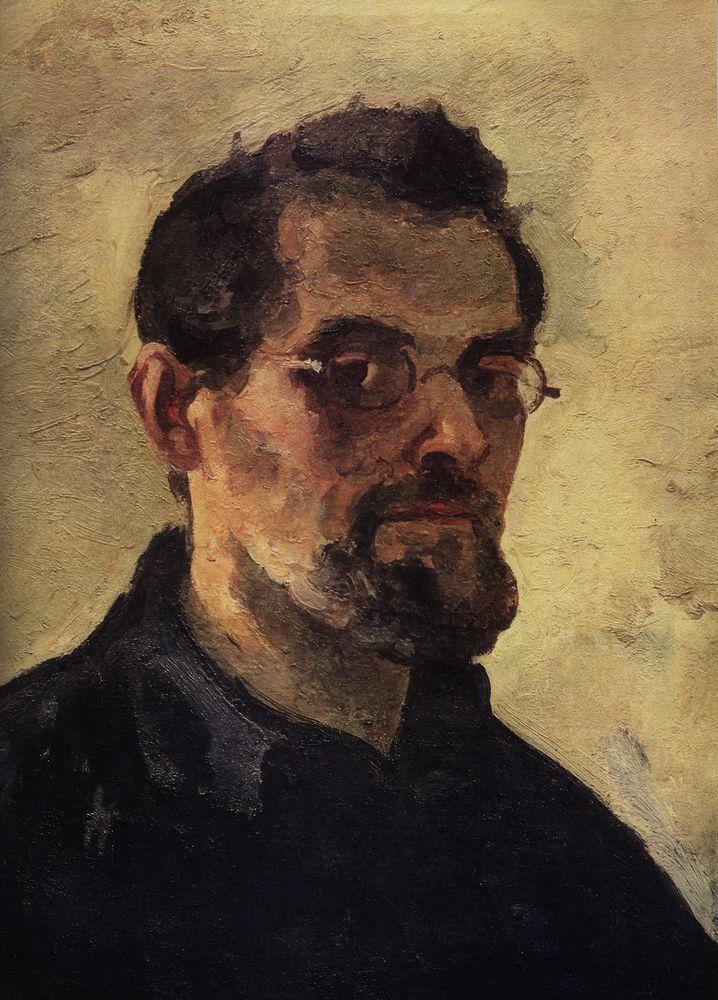
Alexander Vasilyevich Kuprin (Russian: Алекса́ндр Васи́льевич Купри́н) was a Russian painter and educator, renowned for his contribution to the "Jack of Diamonds" group and his profound influence on Soviet art. Born in Borisoglebsk, Voronezh region, in 1880, Kuprin's early life was steeped in the creative atmosphere provided by his family, moving to Voronezh in 1893. His educational journey through various art schools culminated at the Moscow School of Painting, Sculpture, and Architecture, where he was under the tutelage of Abram Arkhipov and Konstantin Korovin.
Kuprin's art evolved significantly over time. Initially inspired by French painting and Cézanne, his early works were marked by Cubist influences, characterized by a geometric simplification of forms. As one of the founding members of the Knave of Diamonds, he was at the forefront of avant-garde movements in Russia. However, his style underwent a transformation towards realism in the 1920s, influenced by his experiences in Nizhny Novgorod and later travels to Crimea. This period marked a departure from avant-garde to a focus on industrial landscapes and the natural beauty of the Crimean peninsula.
His significant works, often reflecting his fascination with the interplay of light, shadow, and form, are held in high esteem, with notable pieces like "Still Life With Blue Tray" and "The Beasal’skaia Valley" housed in the Tret’iakov Gallery. Kuprin's commitment to education saw him teaching at various institutions, including the Moscow textile Institute and the Moscow Higher Art and Industrial School, influencing generations of artists.
Alexander Vasilyevich Kuprin's legacy is not only in the beauty he captured on canvas but also in the minds he shaped through his teaching. His works, a testament to the evolution of Russian art through turbulent times, continue to inspire and captivate.
Collectors and experts in art and antiques can find a deeper appreciation for Kuprin's work by exploring his contributions to the Russian avant-garde and his influence on Soviet art aesthetics. For those interested in staying updated on sales and auction events related to Alexander Vasilyevich Kuprin, signing up for updates is highly recommended. This subscription will provide exclusive insights into the availability of his works, ensuring enthusiasts don't miss the opportunity to own a piece of Russian art history.
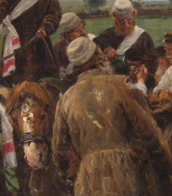

Alexander Vasilyevich Kuprin (Russian: Алекса́ндр Васи́льевич Купри́н) was a Russian painter and educator, renowned for his contribution to the "Jack of Diamonds" group and his profound influence on Soviet art. Born in Borisoglebsk, Voronezh region, in 1880, Kuprin's early life was steeped in the creative atmosphere provided by his family, moving to Voronezh in 1893. His educational journey through various art schools culminated at the Moscow School of Painting, Sculpture, and Architecture, where he was under the tutelage of Abram Arkhipov and Konstantin Korovin.
Kuprin's art evolved significantly over time. Initially inspired by French painting and Cézanne, his early works were marked by Cubist influences, characterized by a geometric simplification of forms. As one of the founding members of the Knave of Diamonds, he was at the forefront of avant-garde movements in Russia. However, his style underwent a transformation towards realism in the 1920s, influenced by his experiences in Nizhny Novgorod and later travels to Crimea. This period marked a departure from avant-garde to a focus on industrial landscapes and the natural beauty of the Crimean peninsula.
His significant works, often reflecting his fascination with the interplay of light, shadow, and form, are held in high esteem, with notable pieces like "Still Life With Blue Tray" and "The Beasal’skaia Valley" housed in the Tret’iakov Gallery. Kuprin's commitment to education saw him teaching at various institutions, including the Moscow textile Institute and the Moscow Higher Art and Industrial School, influencing generations of artists.
Alexander Vasilyevich Kuprin's legacy is not only in the beauty he captured on canvas but also in the minds he shaped through his teaching. His works, a testament to the evolution of Russian art through turbulent times, continue to inspire and captivate.
Collectors and experts in art and antiques can find a deeper appreciation for Kuprin's work by exploring his contributions to the Russian avant-garde and his influence on Soviet art aesthetics. For those interested in staying updated on sales and auction events related to Alexander Vasilyevich Kuprin, signing up for updates is highly recommended. This subscription will provide exclusive insights into the availability of his works, ensuring enthusiasts don't miss the opportunity to own a piece of Russian art history.
